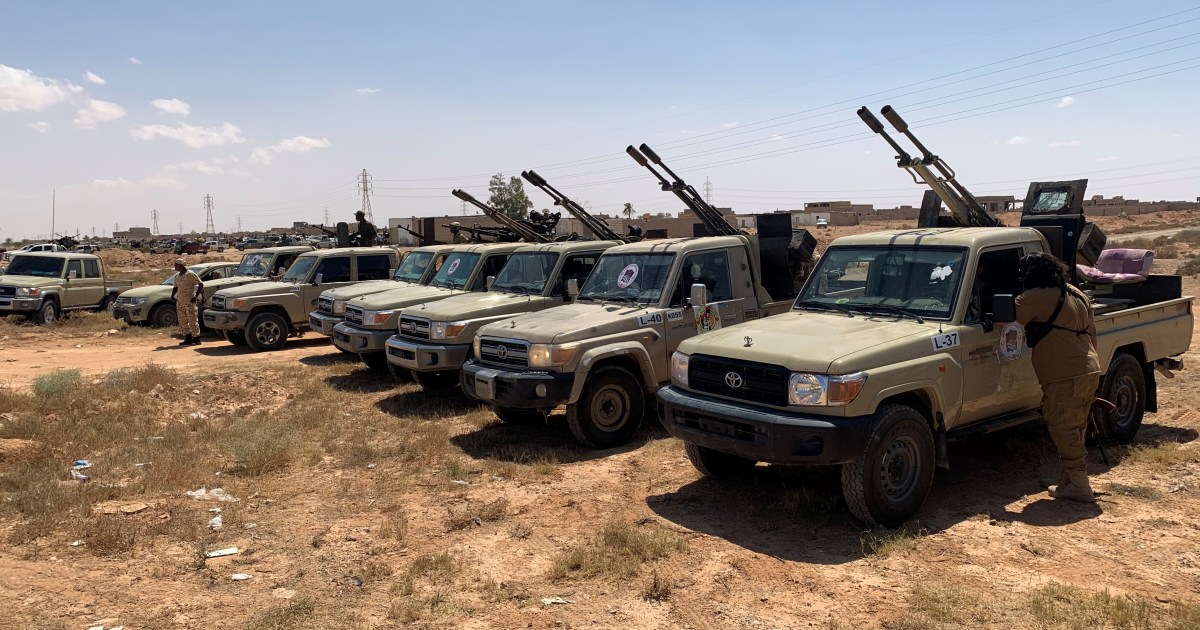Mutual statements between Turkey and France escalated against the background of the Libyan crisis, while Russia announced its agreement with Turkey on the need to continue exchanging views on the normalization of the situation and the cessation of hostilities in Libya.
French President Emmanuel Macron said that Europe should act with regard to the measures taken by Ankara and Moscow in the southern and eastern Mediterranean, while Turkey considered that Macron continues to make the same mistakes in dealing with the Libyan crisis.
The spokesman for the Turkish Foreign Ministry, Protector Hami Aksoy, said that the statements of the French President, in which he attacked Turkey's activities in the Mediterranean Sea and during which the European Union demanded sanctions, had no value for Ankara.
The Turkish official added that the use of threatening language with Turkey does not fall within the jurisdiction of anyone, and will have no result.
The Turkish official confirmed that he expects France to be able to distinguish between the legitimate government recognized by the international community within the framework of United Nations resolutions, and the aggressor who seized the Libyan capital for more than a year and is trying to overthrow the legitimate government.
European position
Parallel to the Turkish-French debate, the European Union stressed the need for a truce that would allow oil exports to resume.
After talks with the Libyan Prime Minister Fayez al-Sarraj, the president of the European Union’s Security and Foreign Policy, Josep Borrell, said that it is a shared priority to stop the escalation around Sirte al-Jafra, to agree to a ceasefire and to resume oil production.
Borrell also announced that he had similar telephone conversations with Turkish Foreign Minister Mevlüt Çavuşoغلlu, during which the two sides agreed to work together to reach a ceasefire in Libya, as part of the Berlin process.
Borrell added that he agreed with the Turkish foreign minister on the need to calm tensions in the eastern Mediterranean before the informal meeting of European Union foreign ministers scheduled in Berlin in late August.
For her part, Helga Schmidt, Secretary-General of the European Union's External Action Division, said in a tweet that it is important to give priority to reducing escalation, a ceasefire and resuming oil production in Libya.
Turkish-Russian format
Within the political and diplomatic movement related to the Libyan crisis; The Russian Foreign Ministry said in a statement that the Russian and Turkish Foreign Minister Sergei Lavrov and Turkish-born Mevlut Jawishoglu agreed - in a telephone call - on the need to continue exchanging views on the normalization of the situation and the cessation of hostilities in Libya.
The two ministers also stressed the importance of continuing coordination with the aim of establishing a dialogue between Libyans with the participation of the United Nations.
The statement added that Lavrov and Gawishogluoglu also discussed the recent escalation between Armenia and Azerbaijan, and the file of bilateral relations.
The Ambassador of Washington talks with Saleh
On the other hand, the US embassy in Libya stated that Ambassador Richard Norland discussed with the Speaker of the House of Representatives, held in Tobruk Aqila Saleh, support for the sovereignty of Libya and enabling the National Oil Corporation to resume its operations.
The embassy added - on its Twitter account - that the two sides discussed, during a phone call, a peaceful and negotiated solution to the Libyan conflict, which would begin to calm the situation around Sirte and Al-Jafra.
Ambassador Norland stressed that the United States rejects all kinds of foreign military interventions in Libya, and fully supports the UN-sponsored dialogue.
Security Council meeting
These developments come ahead of a meeting of the Security Council at the end of this month, which is expected to interrogate the countries involved in violating the arms embargo and oil smuggling.
Tahir al-Sunni, the permanent delegate of Libya to the United Nations, said that the Security Council had responded to Libya's request for a special hearing for the sanctions committee and the panel of experts.
The Libyan delegate added in a tweet that the session will be held at the end of this month in the presence of the countries whose name was mentioned in the international reports, and those involved in violating the arms embargo and attempts to smuggle oil and other violations of Security Council resolutions.

